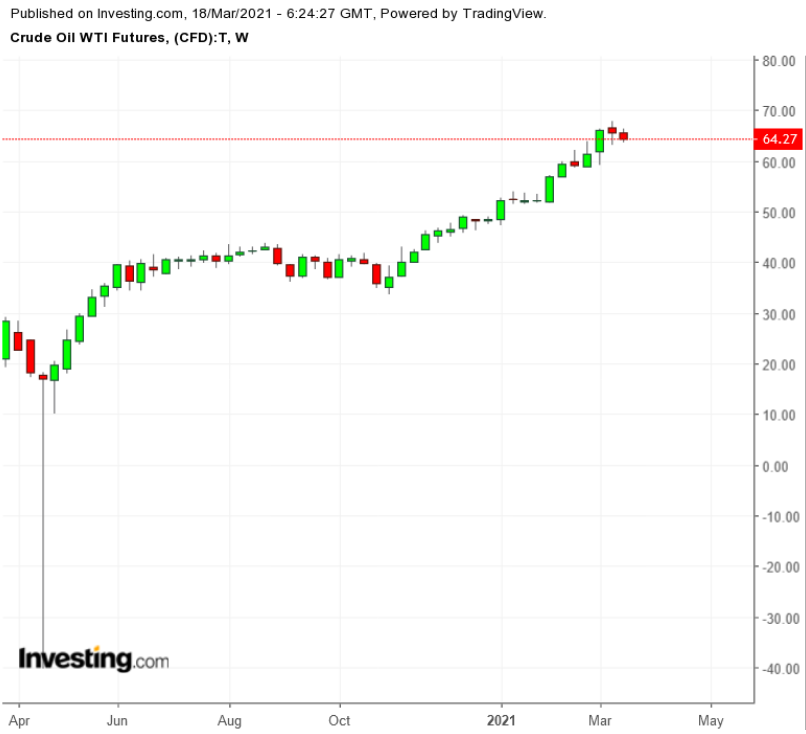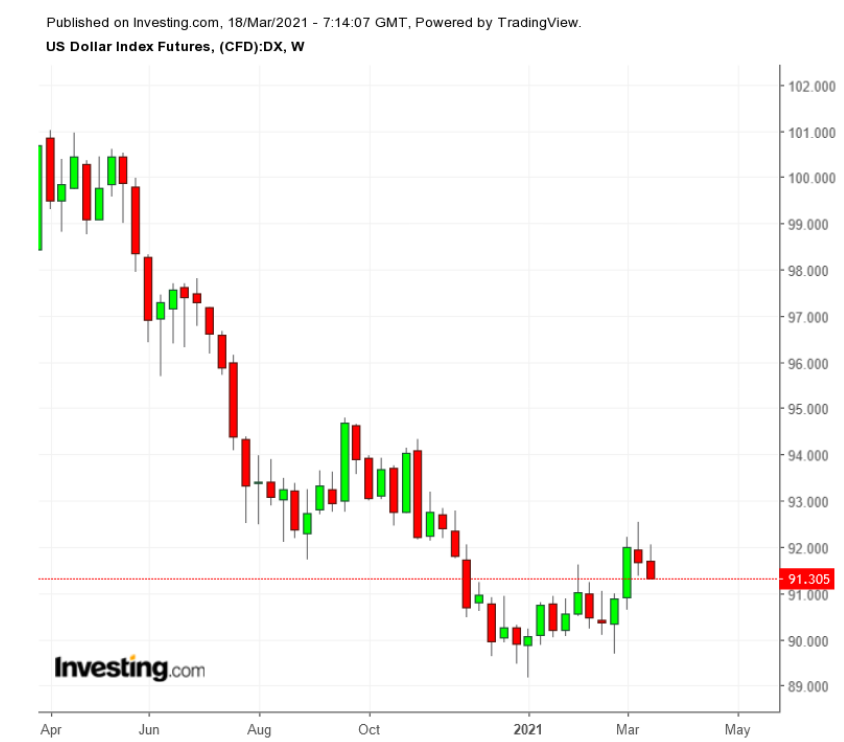U.S. stocks rise on Fed cut bets; earnings continue to flow
It’s important to consider now how potential inflation in the United States could impact the price of oil.

It's been one year since the United States began lockdowns in response to the coronavirus. In that time the federal government has approved a total of $4.8 trillion of stimulus.
In essence, the government, which is already over $27 trillion in debt, is printing more cash. This, economists believe, leads to inflation and a devaluation of the dollar.
When the U.S. dollar loses value, there is a corresponding pressure pushing up the price of oil. In almost all cases, crude oil is sold globally in U.S. dollars, even when neither the buyer nor the seller is American. This is a result of the dollar’s place as the reserve currency in the crude oil market.
As such, the value of the dollar has an inverse relationship with the price of oil.
For example, assume Mexico wants to sell one barrel of crude for $65, or approximately 1345 Mexican pesos (because the current exchange rate is about $1 to 20 pesos). If the U.S. dollar loses value so that the exchange rate becomes $1 to 18 pesos, Mexico would still want the full 1345 pesos for its barrel.
To get that 1345 at the new exchange rate, Mexico would need to sell the barrel for almost $75. To be clear, Mexico would not be able to sell its oil for $75 per barrel, but this sentiment would push prices higher. That's how inflation in the U.S. makes the price of oil rise.
Inflation is a tricky term in the U.S. It's controlled by bureaucratic definitions and absurd calculations that do not accurately gauge the typical American’s major expenses. Luckily for oil traders, the definition for them is simpler.

Oil traders need not look at “inflation” as the U.S. government defines it. Rather, they need to look at the value of the U.S. dollar in comparison to the currencies of major oil producing and consuming nations.
That will better determine if inflation will pressure the price of oil to escalate. If the value of the dollar drops, there will be upward pressure on crude prices. (Note: don’t bother comparing the value of the dollar to the Saudi riyal, because the riyal is pegged to the dollar at a constant exchange rate of $1 to 3.75 riyals).
To be clear, inflation is not the only determinant of the direction of the price of oil. As always, the price of oil is also driven by production numbers, demand numbers, demand forecasts, weather, geopolitical events, inventory figures, seasonality and pure speculation. Inflation is only one factor that may move the price of oil.
Still, keep an eye on those forex tables to be on top of inflation’s pressure on crude.
